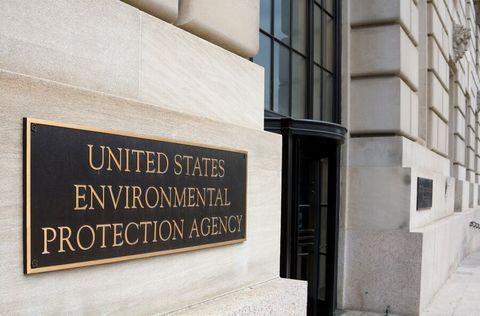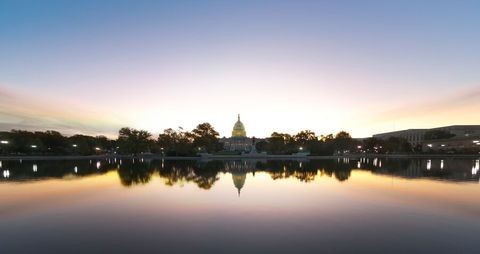Paul Freeman
Overview
Paul Freeman is a partner in Crowell & Moring’s New York office and a member of the firm’s Environment and Natural Resources and Government Contracts groups. He brings two decades of diverse experience advising clients in the energy, maritime, and aerospace and defense industries on a range of issues, with a primary emphasis on matters involving enforcement defense, litigation, and risk management.
Career & Education
- Environmental Protection Agency
Office of General Counsel Honors Program, 1997
- Environmental Protection Agency
- Vermont Law School, M.S.E.L., cum laude, 2001
- Vermont Law School, J.D., 1998
- St. Lawrence University, B.A., cum laude, 1995
- New York
- Connecticut
- District of Columbia
- U.S. District Court for the Eastern District of New York
- U.S. District Court for the Southern District of New York
- U.S. District Court for the District of Connecticut
Paul's Insights
Client Alert | 2 min read | 09.23.25
The Other PFAS Shoe Drops: EPA Will Retain and Defend Its CERCLA PFAS Regulation
Responding to the D.C. Circuit’s deadline to inform the court how it wishes to proceed in litigation challenging the agency’s listing of two types of per- and polyfluoroalkyl substances (PFAS) as hazardous substances under Comprehensive Environmental Response, Compensation, and Liability Act (CERCLA), the Environmental Protection Agency (EPA) stood behind its rule. In a September 17, 2025 filing, EPA told the court that the Trump administration had completed its review and would ultimately keep the Biden-era CERCLA final rule in place. The agency also requested that the court remove—i.e. pause—the abeyance placed on the proceedings, so that the lawsuit could move forward and be adjudicated.
Client Alert | 4 min read | 09.16.25
Press Coverage | 07.15.25
Industry Lawyers Warn High Court Move May Open Citizen Suit Floodgates
Client Alert | 4 min read | 07.11.25
Recognition
- Law360: Practice Group of the Year – Government Contracts, 2019
Paul's Insights
Client Alert | 2 min read | 09.23.25
The Other PFAS Shoe Drops: EPA Will Retain and Defend Its CERCLA PFAS Regulation
Responding to the D.C. Circuit’s deadline to inform the court how it wishes to proceed in litigation challenging the agency’s listing of two types of per- and polyfluoroalkyl substances (PFAS) as hazardous substances under Comprehensive Environmental Response, Compensation, and Liability Act (CERCLA), the Environmental Protection Agency (EPA) stood behind its rule. In a September 17, 2025 filing, EPA told the court that the Trump administration had completed its review and would ultimately keep the Biden-era CERCLA final rule in place. The agency also requested that the court remove—i.e. pause—the abeyance placed on the proceedings, so that the lawsuit could move forward and be adjudicated.
Client Alert | 4 min read | 09.16.25
Press Coverage | 07.15.25
Industry Lawyers Warn High Court Move May Open Citizen Suit Floodgates
Client Alert | 4 min read | 07.11.25
Insights
Zero-Emission Vehicle Transition For Federal Fleets: A Practical Discussion
|05.20.22
National Law Journal
Biden Administration to Use Purchasing Power for Climate Change, Clean Energy Goals
|12.22.20
Bloomberg Law
Government Contracts – A Secure Supply Chain Is a Competitive Advantage
|02.26.20
Crowell & Moring's Regulatory Forecast 2020
Biden’s Environmental Justice Push and Its Impact on Retailers’ ESG Considerations
|05.26.21
Crowell & Moring’s Retail & Consumer Products Law Observer
Practices
Industries
Paul's Insights
Client Alert | 2 min read | 09.23.25
The Other PFAS Shoe Drops: EPA Will Retain and Defend Its CERCLA PFAS Regulation
Responding to the D.C. Circuit’s deadline to inform the court how it wishes to proceed in litigation challenging the agency’s listing of two types of per- and polyfluoroalkyl substances (PFAS) as hazardous substances under Comprehensive Environmental Response, Compensation, and Liability Act (CERCLA), the Environmental Protection Agency (EPA) stood behind its rule. In a September 17, 2025 filing, EPA told the court that the Trump administration had completed its review and would ultimately keep the Biden-era CERCLA final rule in place. The agency also requested that the court remove—i.e. pause—the abeyance placed on the proceedings, so that the lawsuit could move forward and be adjudicated.
Client Alert | 4 min read | 09.16.25
Press Coverage | 07.15.25
Industry Lawyers Warn High Court Move May Open Citizen Suit Floodgates
Client Alert | 4 min read | 07.11.25






